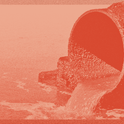Even before this latest wave of strikes, we were in key respects back to the 1970s’ crisis of government. And it looks set to get worse—that is, still more like the 1970s.
I have vivid memories of that terrible decade. Walking around the house with a candle during the regular power cuts, aged 10, and being told “it was all Mr Gormley’s fault” (he was Arthur Scargill’s predecessor as president of the National Union of Mineworkers). Then in the “winter of discontent” in 1978/9, walking around Camden Town seeing huge piles of uncollected rubbish on every street corner, while Jim Callaghan, prime minister in name only, was sunning himself at an international summit in Guadeloupe./p>
Equally grim was the general acceptance of national decline. It was a decade dominated by whether we should be in or out of Europe. Years of painful European Union entry negotiations came to a successful conclusion in 1971, but both parties were split on the issue, with most of the Labour Party against the EU as a “capitalist plot.” Membership was immediately thrown into jeopardy by a referendum in 1975, which did not create a lasting consensus. Despite the decisive referendum majority for staying in the EU, Callaghan refused to join the EU’s nascent Exchange Rate Mechanism, devised with some brilliance by Roy Jenkins, Britain’s only president of the European Commission, as a way of limiting exchange rate volatility, of which sterling was a particular victim. This worsened the economic crisis and, at the very beginning of Britain’s EU membership, set in train the culture of opting out of European projects which ended with Brexit—the supreme opt-out./p>
At the root of the 1970s crisis of government was a succession of prime ministers—five in that one decade (Harold Wilson twice)—who appeared to be at sea while dealing with the twin challenges of “stagflation,” ie high inflation and low growth. A massive rise in the oil price began the vicious cycle, akin to the huge increases in energy prices witnessed in the last year. This led to intense industrial relations crises over pay, which began with the miners (no longer with us) but ended with virtually the entire public sector (very much still with us) as Callaghan sought to keep pay increases below the rate of inflation./p>
In detail there were lots of differences between then and now, and the breakdown in relations between the state and the trade unions—in a society with union density twice the level of today—had far greater consequences than strikes are likely to have today. Nor is there yet any sign of mass unemployment, as in the 1970s./p>
But then as now there was a succession of weak governments, with no obvious salvation on offer from the opposition—until the Falklands War, Thatcher looked set to go the same way as Heath and Callaghan—and no clear formula for national recovery. We had only half-hearted membership of a European Union whose benefits only became abundant when (irony alert) Thatcher embraced—indeed largely created—the concept of the single market in the mid 1980s./p>
However, in retrospect it could have been even worse. For there was one prime minister who got more of the big calls right in the late 1960s and 1970s, but for whom the decade would have been far worse. Harold Wilson, maligned at the time as a devious and calculating opportunist, was actually devious and calculating in pursuit of three objectives which were entirely correct: namely, keeping Britain in Europe and out of Vietnam, and working with trade union leaders to avoid strikes by a process of intensive negotiation which led to “fair shares” while containing inflation./p>
In retrospect it is striking (no pun intended) that neither of the complete breakdown in the authority of the state in the 1970s, which ultimately produced Thatcher, took place under the wily Wilson. It was Heath who got Britain into the miners’ strike and the three-day week in 1973/4; and it was Callaghan, after Wilson’s retirement in 1976, who drifted into the winter of discontent./p>
Wilson dug the country out of Heath’s hole after 1974. And I cannot conceive that Wilson would have been so inept as to have got into the similar crisis created by Callaghan in 1978/9. As a serious economist, he would also, I am fairly sure, have joined the Exchange Rate Mechanism (Roy Jenkins told me that Wilson said this to him at the time)./p>
Some Tories are asking: where is Thatcher when you need her? But the real question for both Tories and Labour is where is Wilson, so that things don’t get so bad in the first place? But whether you want a Thatcher or a Wilson, they don’t look like Boris Johnson.













